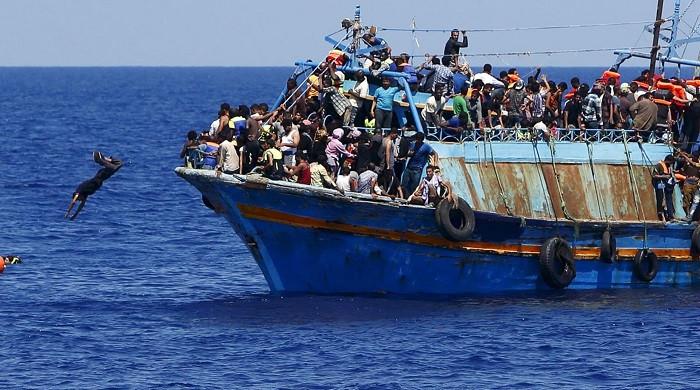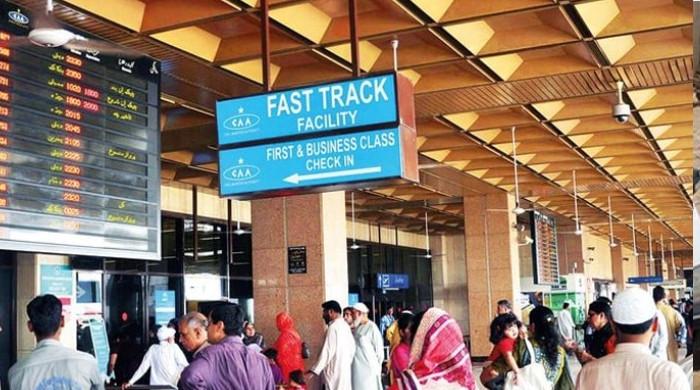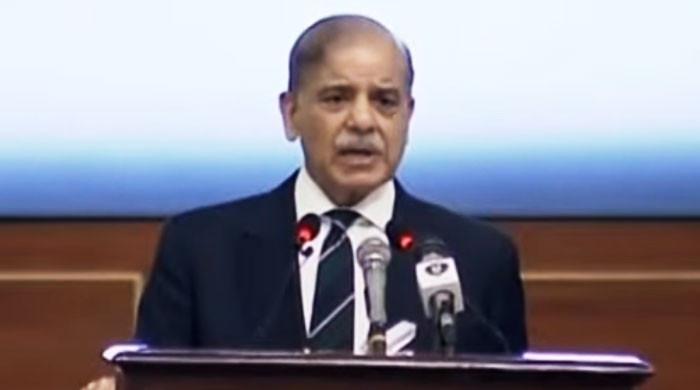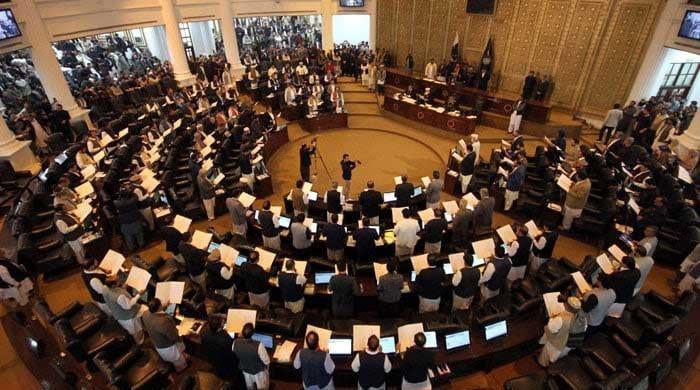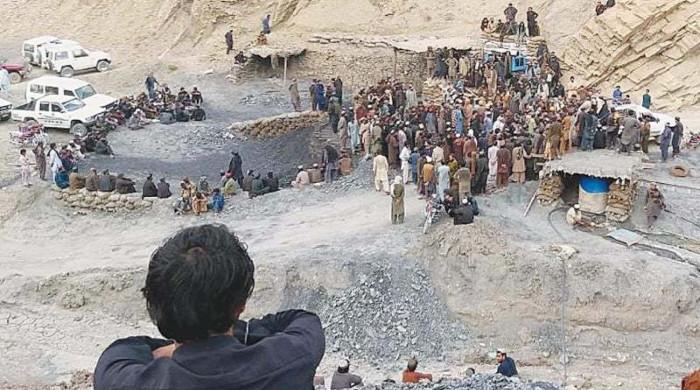PM calls for recognising India as 'world's largest hypocrisy'
PM reaffirms Pakistan's support to Kashmiris, rejects Indian SC’s politically-motivated verdict
December 14, 2023
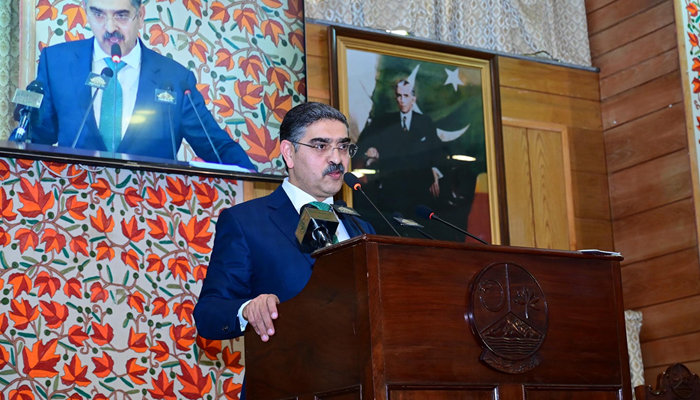
- PM Kakar reaffirms Pakistan's support to Kashmiris.
- He rejects Indian SC’s politically motivated verdict.
- "No Indian court verdict can suppress Kashmiri people."
Caretaker Prime Minister Anwaar-ul-Haq Kakar said Thursday neighbouring India should be recognised as “the world's largest hypocrisy” instead of being labeled the world's largest democracy.
In his address to the Azad Jammu and Kashmir Legislative Assembly in Muzaffarabad, the prime minister reiterated Pakistan's steadfast commitment to supporting the people of Kashmir in their rightful struggle against Indian subjugation.
The PM’s address came after India's Supreme Court upheld a 2019 decision by Narendra Modi’s government to revoke special status for the state of occupied Jammu and Kashmir and set a deadline of September 30 next year for local polls to be held.
In response, caretaker Foreign Minister Jalil Abbas Jillani slammed the Indian Supreme Court's verdict as “travesty of justice, based on distorted historical and legal arguments”.
Meanwhile, Kakar underscored that the Indian government's unilateral actions on August 5, 2019, endorsed by the Indian Supreme Court, blatantly violate international provisions.
He asserted that domestic legislation and judicial decisions cannot absolve India of its international obligations under UN Security Council resolutions, emphasising that any process subject to the Indian constitution cannot determine IIOJK’s final status under international law.
The prime minister said that Jammu and Kashmir is an international dispute, and neither the Indian government nor its judiciary has the right to take unilateral actions against the will of other involved parties namely, the Kashmiri people and Pakistan.
He stressed that no Indian court verdict can suppress the aspirations of the Kashmiri people.
Highlighting the actions of the Hindutva-driven leadership of India, the prime minister condemned the targeting of defenseless Kashmiri men, women, and children.
He lamented the loss of over 96,000 lives, with thousands of women facing molestation and harassment in the past 34 years. Kakar called for an end to these brutalities.
The prime minister reminded Indian leaders that unilateral steps in Jammu and Kashmir cannot legitimise their occupation or suppress the genuine sentiments of the Kashmiri people.
He rejected illegal and unilateral measures, including gerrymandering of electoral constituencies, issuance of domicile certificates to outsiders, and additions to the voters' list, as strategies to alter Kashmir's demography and political landscape.
Affirming that Kashmir is Pakistan's jugular vein, the prime minister stressed the intrinsic connection between Pakistan and Kashmir based on geographical proximity, shared history, and commonality of faith.
He asserted that the entire Pakistani leadership, despite political differences, stands united in supporting the Kashmiri people's just struggle for self-determination.
Discussing Pakistan-India relations, the prime minister expressed Pakistan's desire for good neighborly relations with New Delhi.
However, he emphasised that durable peace in South Asia hinges on resolving the Jammu and Kashmir dispute.




